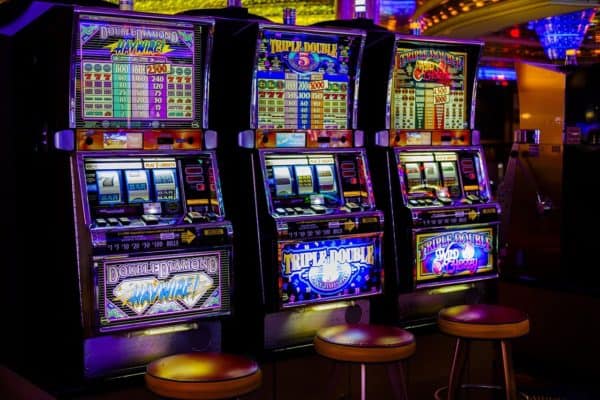The online gambling industry has brought the excitement of casinos to millions around the world. Hand-in-hand the rise of online casinos raises players’ concerns about fairness and legitimacy. One of the most critical aspects of this debate is the topic of Random Number Generators (RNGs) in online casino games. What guarantees do players have that RNGs are truly random? Is there a way to ensure fair play in the digital gambling space?

What are RNGs and How Do they work?
RNGs are complex algorithms designed to generate unpredictable and statistically random outcomes. In online casinos, they’re used to determine the results of the best online slot games, roulette, and card games. RNGs mainly work in one of two ways:
- True Random Number Generators (TRNGs) utilize natural randomness sources, such as radioactive decay or atmospheric noise, to generate unpredictable results.
- Pseudo-Random Number Generators (PRNGs) are more commonly used by online casinos. These rely on complex mathematical formulas to create seemingly random sequences.
It’s clear that TRNGs offer the actual randomness, but they can be slower and more resource-intensive to put into action. PRNGs work faster and more efficiently, but since they rely on algorithms, there’s always the concern that they could easily be manipulated by online casino developers.
Regulatory Oversight and RNG Testing
To ensure fair play and transparency, online casinos are subject to strict regulations and independent testing of their RNGs. There are established reputable organizations like eCOGRA and GLI that conduct regular audits on online casino RNGs and certify that they meet organizational standards for fairness and randomness. Obtaining these certifications serves as an unmistakable indicator of a casino’s commitment to fair play.
Common Concerns and Skepticism Toward Online Casino RNGs
Despite these measures, there’s still a good deal of player skepticism towards online casino RNGs. They often harbor concerns about rigged games, manipulation, and the influence of casino-designed algorithms.
Confirmation bias is a phenomenon where players tend to remember negative outcomes more vividly than positive ones. This can fuel gamer anxieties about being cheated. Additionally, there’s an ample number of misconceptions and myths surrounding RNGs. A common example is the belief that win streaks can be predicted, contributing to the general skepticism swirling around casino-implemented RNGs and whether they are factually random.
Addressing Player Skepticism and Promoting Transparency
Open communication and transparency are necessary for online casinos to build trusting relationships with players. Regularly publishing RNG certificates and testing reports on casino websites is a good starting point. Live demonstrations of RNGs can also provide players with a firsthand look into the randomness of the system being used
Blockchain Technology and RNG Fairness
Blockchain technology is decentralized and tamper-proof. These qualities give it immense potential for improving RNG transparency and security. Players could independently verify the randomness of each game outcome by recording the entire RNG’s activity history onto a blockchain. While it’s still in the early stages of adoption, blockchain technology has the potential to revolutionize the perceived RNG fairness in online casinos.

Alternatives to RNG-based Games and the Rise of Skill-based Gaming
RNG-reliant games aren’t the only type offered by casinos. For those players looking for greater control over their outcomes, many online casinos offer skill-based games as a compelling alternative.
These games often involve strategy and split-second decision-making. This allows players to influence the game’s outcome using their skills. While skill-based games are more challenging to design and balance, they cater to a growing segment of players looking for a more interactive and engaging gambling experience.
Responsible Gambling and Player Protection
Regardless of the tested fairness of RNGs, responsible gambling practices remain a top priority. Online casinos should actively promote responsible gambling resources and tools. Many offer self-exclusion options and deposit limits to help players keep themselves in check. But this is a two-way street, players should also gamble responsibly and set logical expectations for themselves and their chances of winning.
It Takes Two
While player concerns about online casino RNGs are reasonable, it’s important to give casinos credit for the measures they take to ensure fair play. Regulatory oversight, independent testing, and technological advancements like blockchain pave the way for a more transparent and secure environment when gambling online. Ultimately, both casinos and players are responsible for creating and maintaining safe and enjoyable gambling experiences.
 Gearfuse Technology, Science, Culture & More
Gearfuse Technology, Science, Culture & More


